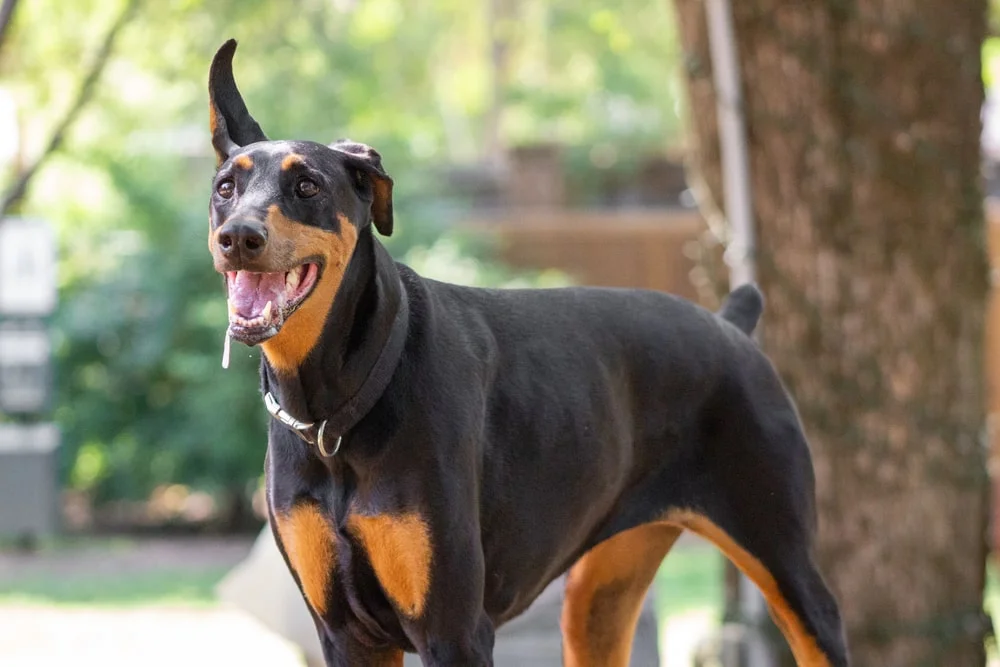PET BEHAVIOR
All dogs drool. It is just a fact of life with dogs. They drool when they are happy, excited, and even nervous. They tend to drool even more if they are anticipating yummy treats or table scraps.
Like humans, dogs have glands in their mouths, which produce saliva. The enzymes in saliva begin breaking down food, which is the first step in the digestive process. Some dogs drool more than others. Drooling alone is not a sign of ill health, but you need to know what is normal drooling for your dog.
Breeds with flatter faces and big lips, such as Boxers, Saint Bernards, and Mastiffs tend to drool more than other dogs. This is because saliva builds up in the pouches of their cheeks, so then when they decide to shake their heads, well - you get a doggy slobber shower.
Tooth, Mouth, or Throat Issues
There are times increased drooling can signal a problem in your pup. Sometimes excessive drooling can indicate issues with your dog’s teeth, or possibly tumors inside his mouth, esophagus, or throat.
Tartar buildup and irritation of the gums can also lead to drooling, as can an infection in the mouth. If your dog has a foreign body stuck anywhere in his mouth or gums, this can lead to slobbering. Anything caught between your dog’s teeth or stuck in his throat, such as a piece of bone, can cause increased saliva production and drool.
Ptyalism in Dogs
Ptyalism, also known as hypersalivation, is a condition in which a dog produces excess saliva.
There can be several reasons for this, so look for other changes in your dog, such as:
- Inflammation on, in, or around the mouth
- Changes in behavior
- Refusal to eat or changes in eating behavior
- Increased salivation accompanied by vomiting and diarrhea
- Change in color or consistency of your dog’s saliva
Other possible causes can be cuts or scrapes inside your dog’s mouth or infections that make swallowing difficult. Inflammation of the tonsils or salivary glands can also cause excess production of saliva and difficulty swallowing.
A veterinarian can usually make a diagnosis of ptyalism in an office visit.
Inflammation, cuts, or scrapes can generally be treated easily with medication. If a foreign object is lodged in your dog’s mouth, your vet should be able to remove it and treat any irritation it may have caused.
Other Causes of Drooling
Some dogs tend to drool more than usual during car rides. This is because motion sickness causes nausea in dogs. Anything that upsets a dog’s stomach can lead to excessive drooling. Motion sickness is more common in younger dogs, while older dogs tend to grow out of it.
Drooling is also a symptom of rabies. However, you can quickly rule this out if you know your dog is up-to-date on his rabies vaccinations.
Drooling and Heat
In the summertime heat, excessive drooling can be a signal of overheating. Panting is the only means dogs have to cool themselves off. Unlike humans, they don’t have the option of removing layers. They can’t just take off their fur coats.
If your dog appears to be panting and drooling excessively, get him out of the hot weather and take steps to cool him down. If a dog is severely overheated, excessive drooling can be a sign of heatstroke.
A few puddles of pup slobber should not send you panicking to the emergency vet. However, if you notice drooling that is unusual for your dog or drooling accompanied by changes in behavior, lethargy, purplish gums, or sudden, excessive drooling accompanied by vomiting or diarrhea, let your veterinarian do a check-up.
Your vet will rule out any serious causes for drooling and can treat any irritants that you may not find on your own.
Get Dog Insurance You Can Drool Over With MetLife Pet
While drooling may not be anything to worry about, sometimes excessive drooling can signal an underlying health issue. If you need to see a vet, a MetLife Pet dog insurance policy could help you cover some of the costs. Keep the tail wags and happy drools going — enroll your pup today, starting with a free quote.

